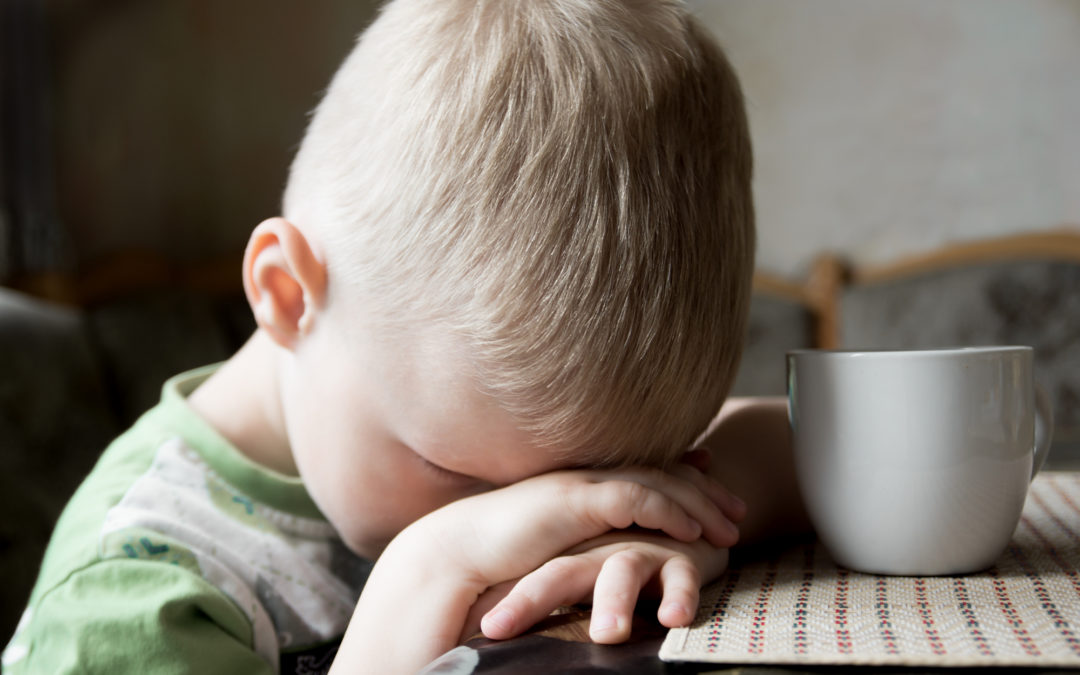Is your child having trouble falling or staying asleep? It is important to get restful sleep in order to heal and repair the body. Sleep deprivation can negatively impact your child’s life and could be caused from a sleep disorder. Recent health reports have found many children living in the U.S. are sleep deprived on a regular basis. For example, researchers found in a National Sleep Foundation survey that more than two-thirds of children 10 and under have suffered from a sleep problems
Sleep problems in children can bring extreme consequences. In a study at Northwestern University Medical Center, researchers followed sleeping patterns of 510 two and three year old children. The study revealed less sleep at night is linked to more behavioral problems during the day. Similar studies in children have associated poor sleep with bad grades in reading, writing and math. Further research has shown children who are sleep deprived have increased anxiety disorders and symptoms of depression.
Sleep Problems in Children
Sleep problems can be separated into two categories; dyssomnias and parasomnias.
Dyssomnias include the following:
- Sleep-onset difficulties
- Limit-setting sleep disorder
- Inadequate sleep hygiene
- Insufficient sleep syndrome
- Snoring and obstructive sleep apnea (breathing pauses and gasping while sleeping that causes you to wake up)
Parasomnias include the following:
- Nightmares (a nightmare is a bad dream)
- Rhythmic movement disorders such as rocking
- Sleepwalking
- Night terrors (a night terror is not a dream but a partial awakening with unusual behaviors)
Sleep problems can disrupt the sleep cycle that includes difficulty falling asleep, staying asleep, and possibly waking early in the morning. Children who have a hard time falling asleep could also be suffering from sleep anxiety or insomnia. Some possible triggers can include daily pain, stress, or mental health issues. If you notice your child seems depressed, irritable, has difficulty concentrating, experiences night terrors, or snores frequently, a sleep disorder could be the problem. Some sleep problems in children and teens are fairly common and easy to treat. On the other hand, they could have negative effects on their overall health. These can include increased risk for diabetes, high blood pressure, cardiovascular disease, and more.
Better Sleep For Kids
Daytime habits can also affect sleep. If your child has a hard time falling or staying asleep, you can help by trying some of the following:
- Identifying any stressors such as changes, additional homework or problems with friends that could cause anxiety
- Follow a regular bedtime routine that help your child relax
- Arranging a balanced schedule with interspersed periods of rest and play
- Stick to the same bedtime every day
- Make the bedroom a no-screen zone (even during the day)
- Provide a healthy diet
- Keep the bedroom a little cooler for better sleep
- Use dark curtains to block out light (if scared, a nightlight can be used)
- Keep the bedroom quiet, or use a white noise machine to mask noises
- Avoid large meals, caffeine, or sugar before bedtime
- If problems with sleeping continue, refer to a sleep specialist
Turn to Just Breathe DDS for Your Child’s Sleep Disorder
The thought of having your child evaluated for a sleep disorder and possibly needing treatment can feel overwhelming. You are not alone. There are many parents who struggle to know where to begin. At Just Breathe DDS, we’re experts in the field of pediatric sleep and we can help. Our team of experts provide the top pediatric sleep treatment in Hayden, ID for children of all ages. Our sleep treatment is a short term process, which provides lifetime results. You can rely on Just Breathe DDS to improve your child’s breathing, sleeping and overall health and wellness. For better breathing, better sleep and a better life for your child, call our sleep clinic today at (208) 500-3030.
References
Center For The Advancement Of Health. “Preschoolers Who Sleep Less Have More Behavior Problems.” ScienceDaily. ScienceDaily, 18 June 1999. <www.sciencedaily.com/releases/1999/06/990618063129.htm>.
https://www.sleepfoundation.org/children-and-sleep
https://www.webmd.com/children/sleep-disorders-children-symptoms-solutions
https://www.webmd.com/sleep-disorders/default.htm
https://www.webmd.com/sleep-disorders/sleep-habits-assessment
https://www.sleepfoundation.org/children-and-sleep
Bhargava, S. (2011). Diagnosis & management of sleep problems in children. Pediatrics in Review-Elk Grove, 32(3), 91.
McDowall, P. S., Elder, D. E., & Campbell, A. J. (2017). Relationship between parent knowledge of child sleep, and child sleep practices and problems: A pilot study in a children’s hospital cohort. Journal of pediatrics and child health, 53(8), 788–793.

